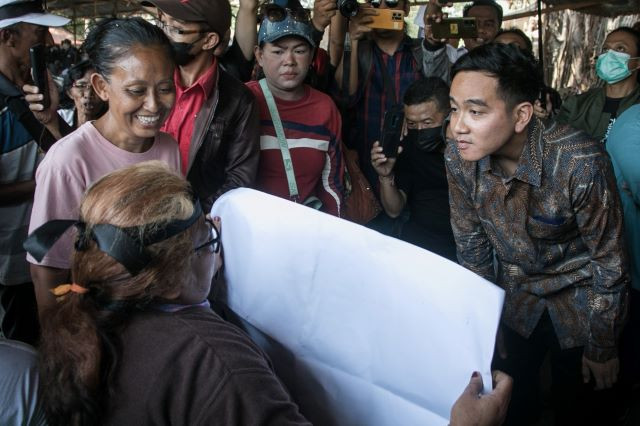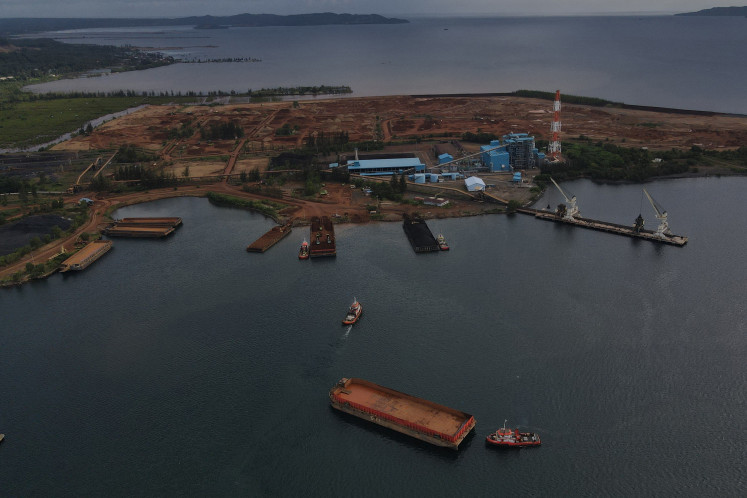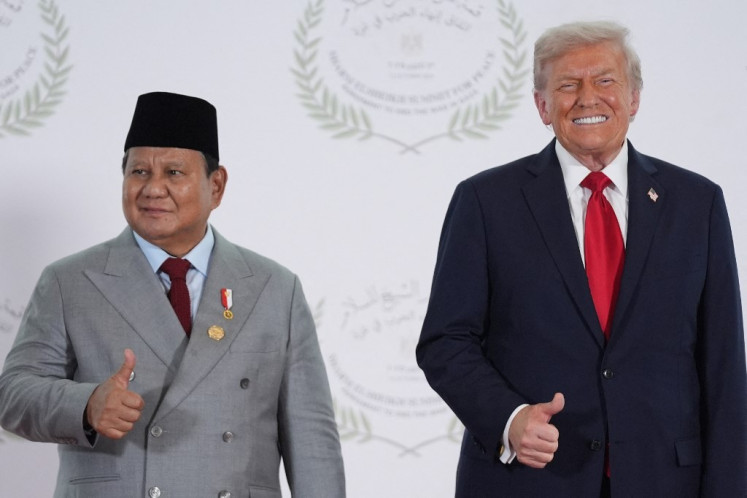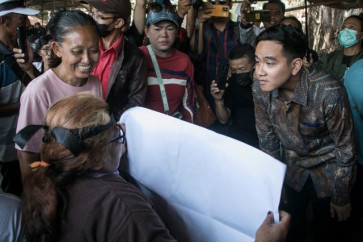Popular Reads
Top Results
Can't find what you're looking for?
View all search resultsPopular Reads
Top Results
Can't find what you're looking for?
View all search resultsJokowi, dynasties and grass roots: The PDI-P's defining moment
The PDI-P, with or without Jokowi's backing, should stick to its decision in nominating Ganjar Pranowo for the presidential race.
Change text size
Gift Premium Articles
to Anyone
 Sound of silence: Surakarta Mayor Gibran Rakabuming Raka (right) meets on Oct. 16, 2023 with local culture advocates and people holding a silent protest. The event took place as the Constitutional Court was convening to decide on a judicial review filed to justify Gibran’s running for vice president in the upcoming election. (Antara/Mohammad Ayudha)
Sound of silence: Surakarta Mayor Gibran Rakabuming Raka (right) meets on Oct. 16, 2023 with local culture advocates and people holding a silent protest. The event took place as the Constitutional Court was convening to decide on a judicial review filed to justify Gibran’s running for vice president in the upcoming election. (Antara/Mohammad Ayudha)

Indonesia stands at a crucial political crossroads. As the Constitutional Court (MK) opens the doors for younger presidential contenders, the focus is on the next move of the Indonesian Democratic Party of Struggle (PDI-P).
While speculation about the partnership between party member Gibran Rakabuming Raka and Gerindra Party chairman Prabowo Subianto is rife, the core strength and direction of the PDI-P might lie with its grass roots. Their role will be the party's response to these changes and its vision for the future.
The MK's pivotal decision on Monday holds profound implications for Indonesia's political trajectory. Previously, presidential or vice-presidential candidates must be at least 40 years old. The ruling, however, now permits candidates under 40 who demonstrate regional leadership skills to infuse fresh vigor into the political arena. This will pave the way for Gibran, the mayor of Surakarta, to run in the coveted race as Gerindra is poised to pick President Joko “Jokowi” Widodo’s eldest son as Prabowo’s running mate, amid apprehensions regarding a trend toward dynastic politics.
Dynastic politics is not a phenomenon unique to Indonesia. Countries like India with the Nehru-Gandhi dynasty, the Philippines with the Aquino and Marcos families, and the United States with the Bush and Kennedy families have all had their own experiences with such dynamics. However, the legislative response, specifically, the MK's recent ruling, sets Indonesia apart. Notably, MK Chief Justice Anwar Usman is President Jokowi's brother-in-law. This situation has raised many eyebrows and prompted concerns about the motivations and implications of this ruling.
The PDI-P is now faced with a challenge that will test its character as a political entity. While the grassroots members have historically been its strength, they still need their challenges. Some critics argue that the membership might be susceptible to local vested interests, potentially causing a deviation from the party's central principles. Addressing these concerns is essential for the party to maintain its credibility.
The overarching influence of Jokowi on Indonesian politics is undeniable. His tenure has been marked by reform, development and a unique brand of leadership that has endeared him to many. However, the looming possibility of his legacy taking a more familial form raises questions about the future direction of Indonesian politics. Is the nation veering toward dynastic patterns seen in other Asian political landscapes?

For the PDI-P, this is more than just a transitional phase; it is an examination of its core principles. With Jokowi's immense contributions to the party and nation, will the PDI-P prioritize legacy over progress? Or will it pivot toward a broader vision, as indicated by its decision to name former Central Java governor Ganjar Pranowo its presidential candidate?

















